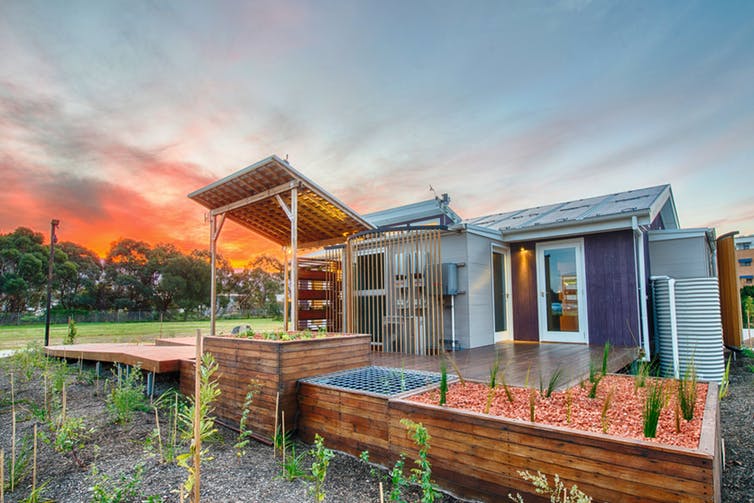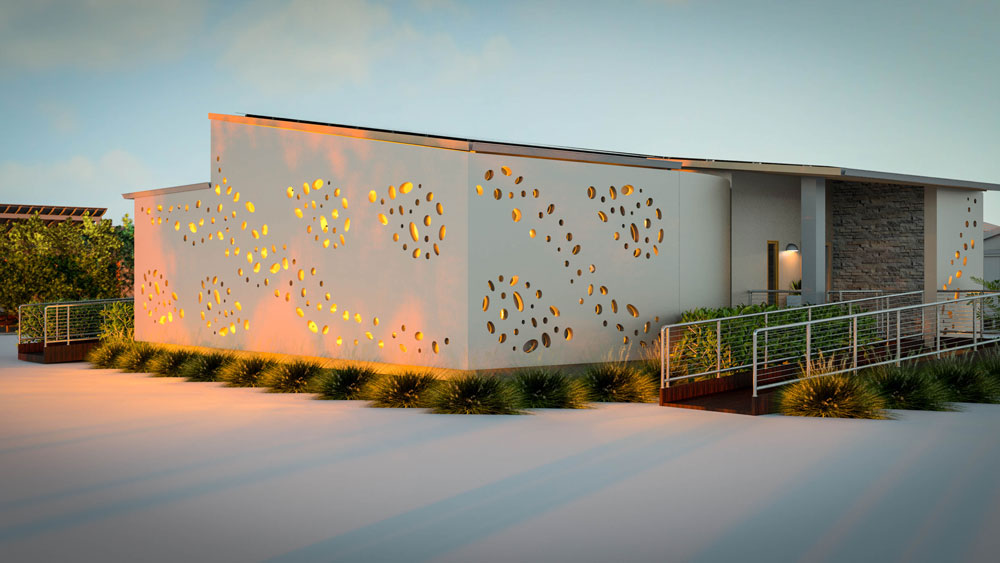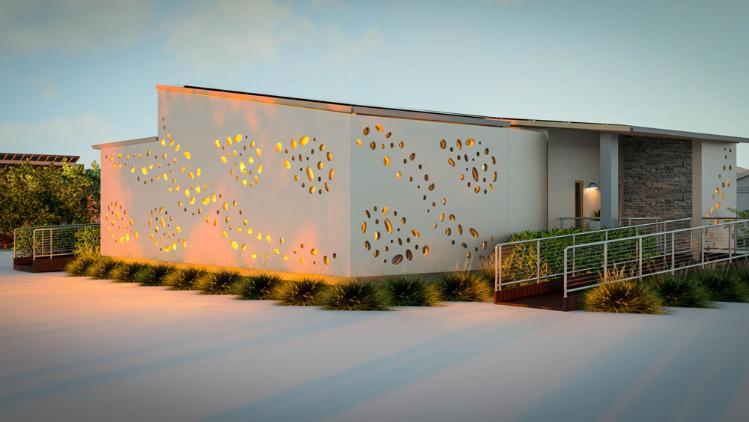The Sustainable Homes Challenge, powered by the University Of Wollongong's Sustainable Buildings Research Centre and funded by McKinnon Walker Trust, invites students from all over the world to come together to create sustainable, healthy and affordable homes.
Sustainable Homes Challenge
Homes from Waste
This year’s challenge is focused on the world’s waste problem, in particular, using waste to build sustainable and liveable homes.
Globally humans are expected to generate an estimated 2.2 billion tonnes of waste by 2025. Wouldn’t it be great if some of that waste went back into creating more buildings?
Participants are placed in teams, and over five months create a design proposal for the construction of a home that includes innovative components made from available waste-derived materials.
Final outcomes for the challenge will be presented as part of the 2021 Homes from Waste Symposium on December 3, 2021.
Outcomes from each of the teams in the Sustainable Homes Challenge 2021 can be found at the links below:
SHC Blog
Sustainable Homes Challenge 2021 Final Pitch Presentations
The Sustainable Homes Challenge 2021, powered by University Of Wollongong’s Sustainable Buildings Research Centre and funded by McKinnon Walker Trust, brings together students from all over the Australia to create sustainable, healthy and affordable homes.
Watch now
Are you up for the challenge?
We are looking for students from all over Australia to come together and solve this important complex problem. We value diversity and strongly encourage applications from all backgrounds. Register to download the full brief and application process (applications close 4 June 2021) or to attend an information session (via Zoom, 28 May).
Register Now Sustainable Homes Challenge winners announced

What does a sustainable, healthy and affordable home look like?
Sustainable — Homes designed to achieve high levels of building performance, including efficient building fabric and systems, using low impact materials.
Healthy - Aspiring for salutogenic design which supports healthy and happy lives - from the construction materials used to the layout of the home. No nasties!
Affordable - Potential for the design to be mass-produced in a cost-effective way to contribute to solutions for affordable housing.
This year’s challenge is focused on the world’s waste problem, in particular, using waste to build sustainable and liveable homes.
Challenge timeline
Overview and Prerequisites
A total of 30 students will be invited to participate in the challenge. Participants will be put into teams and over five months create a design proposal for the construction of a home that includes innovative components made from available waste-derived materials. At the end of the challenge the teams will be brought together for a special finale week at the University of Wollongong’s campus on the beautiful south coast of New South Wales.
Prerequisites:
- Applications will only be accepted by students currently enrolled at a University in a coursework-based degree
- The challenge is open to students from any discipline
- All students must be available to travel to Wollongong from 29 November to 3rd December 2021
Applications open
Register below and submit your application by the June 4, 2021. Successful applicants will be notified by the June 30, 2021.
Groundwork phase
Teams work collaboratively led by academic mentors and supported through online learning to create a design proposal for a home from waste.
Finale Week
Teams are brought together virtually for a week of workshops, industry engagement and design challenges culminating in the final public presentations of the design proposals.
Prizes and awards will be handed out for outstanding achievements.
Want to support this challenge?
We invite industry partners to help make this challenge impactful. Reach out to us to start a conversation on how your business can be a part of building a more sustainable future.
Email SBRC now
Subscribe to the SBRC mailing list
Subscribe to keep up-to-date with the challenge and news from the Sustainable Buildings Research Centre
